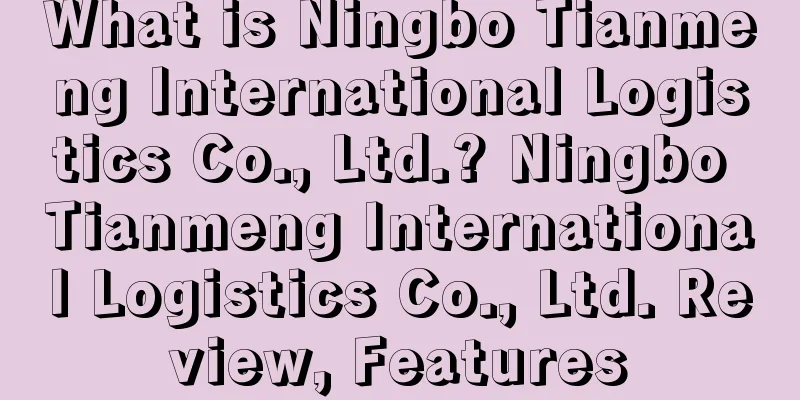US court issues temporary restraining order involving dozens of products on Temu platform

|
The infringement dispute between Shein and Temu has been widely concerned by the industry and beyond. Now, there is new progress in this dispute.
US court issues TRO to 29 Temu shops
The latest temporary restraining order released by a U.S. court shows that dozens of products on the Temu platform are suspected of infringing Shein.
The Eastern Division of the United States District Court for the Northern District of Illinois issued a TRO (temporary restraining order) to the parties involved, including 29 Temu stores , demanding that the infringement of Shein be stopped. The dozens of products on the Temu platform cover men's clothing, casual wear, sportswear, children's clothing and other categories, covering an extremely wide range. This is the latest development in the incident between the two parties after Temu recently resumed the lawsuit against Shein in the United States. Previously, in August 2023 and September 2023, the US court and the British court also issued temporary restraining orders against Temu for infringement of Shein.
Li Xiaoyue, executive director of Guangdong Song Law Firm, said: "The TRO injunctions issued by the British and American courts are sufficient to prove that Temu has committed multiple and multiple infringements of SHEIN's copyright and goodwill, which have caused SHEIN to suffer urgent, direct and serious damage, so that SHEIN's rights need to be urgently protected."
It is reported that the two sides have been in dispute since Temu went online in September 2022, but in fact, the models of the two sides are different. Temu's platform model covers all categories and all are third-party merchant products, while Shein focuses on fashion, covering its own brands and third-party merchant products under the self-operated + platform model. The clothing brand of the same name, Shein, is currently one of the most popular fashion clothing brands among overseas users .
"Unlike before, this TRO is issued to some of Temu's merchants, and restricts and prohibits the merchants' sales and fund transfers. It can be seen that Temu's infringement of SHEIN is still ongoing, and the infringement of SHEIN's intellectual property rights has not stopped, and the infringers have expanded to Temu's merchants and third-party payment platforms." Li Xiaoyue pointed out: "Under the restrictions of the TRO temporary restraining order, Temu and its merchants must rectify their infringing behaviors within the time specified by the court."
Cross-border e-commerce sellers are no strangers to TROs. TRO is a temporary injunction, a court order issued by the court in an emergency to protect the rights of the plaintiff (rights holder) and requiring the relevant parties to take certain actions or prohibit taking certain actions. In cases involving infringement by e-commerce merchants, TRO can simultaneously bind e-commerce platforms and merchants. For e-commerce platforms, the requirements of TRO may include providing the plaintiff with information about relevant merchants, prohibiting the promotion of infringing products, and freezing the accounts of relevant merchants. For merchants involved in infringement, the requirements of TRO may include prohibiting the continued sale of infringing products and prohibiting the transfer of funds on the e-commerce platform.
The United States and the United Kingdom have issued TROs against Temu twice
On August 1, the U.S. federal court issued a temporary restraining order against Temu, requiring Temu to stop infringing on Shein. According to court documents, Temu's infringement in the past few months includes plagiarizing Shein's clothing in large quantities, repeatedly ignoring the infringement notices (DMCA notices) issued by Shein, delaying the removal of infringing products to increase sales of suspected infringing products; misleadingly using the word Shein in Temu's web page titles, etc.
In September , in response to Shein discovering thousands of infringing photos on Temu's website without Shein's permission or consent, a British court issued a temporary restraining order against Temu, requiring it to stop its infringing actions against Shein and remove the relevant infringing pictures.
Jiang Han, a senior researcher at Pangu Think Tank, analyzed that the clothing field has always been one of the focuses of competition between the two parties, but there are differences between Temu and Shein in terms of model. Temu is similar to the domestic Pinduoduo model, which is a full-category platform. Merchants and the Temu platform are in a supply-sales relationship. In the clothing field, Shein started with its own clothing brand, and its clothing brand Shein is currently one of the most popular fashion clothing brands for overseas users. This determines that the cooperation between the two parties and clothing factories is different. The Shein brand cooperates with clothing factories mainly to make products of its own brand Shein. The factory supplies according to the standards and requirements given by the Shein brand. Without the consent and authorization of Shein, suppliers cannot provide Shein brand products and pictures to other third parties without authorization.
"Some overseas markets have complete and thorough laws and policies on brand intellectual property protection, and the investigation and punishment of infringements are also strict and standardized." Li Xiaoyue said, "The Party Central Committee and the State Intellectual Property Office have also made comprehensive strengthening of overseas intellectual property protection a key task to promote the overall promotion of intellectual property protection on international trade. Therefore, domestic enterprises going overseas should pay special attention to the issue of overseas intellectual property protection, enhance their awareness of self-protection and prevention of infringement, and ensure that their operations are legal and compliant, so as to achieve long-term development."
In fact, just a few days ago, the General Office of the State Council issued the "Several Measures on Accelerating the Integrated Development of Domestic and Foreign Trade". In order to optimize the development environment of domestic and foreign trade integration, it emphasized strengthening intellectual property protection, focusing on clothing, shoes and hats, and launching special actions to combat infringement and counterfeiting, and promptly correcting and stopping online infringements; at the same time, it accelerated the construction of domestic and foreign trade brands, supported domestic and foreign trade enterprises to cultivate their own brands, cultivated intellectual property advantage demonstration enterprises, and supported enterprises to give play to the combination effects of various types of intellectual property rights such as patents and trademarks to enhance the overall competitiveness of brands.
As cross-border e-commerce develops in a healthier and more orderly direction, platforms should strengthen their main responsibilities and establish a sound intellectual property protection system; merchants should pay attention to operating in accordance with the law to prevent their interests from being damaged due to infringement issues.
Amazon sellers are also troubled
In fact, it’s not just Shein . Many Amazon sellers are also troubled by Temu’s infringement.
After visiting dozens of cases , the world-renowned wired magazine WIRED stated that " Temu sellers are cloning Amazon storefronts." In these cases, Amazon sellers from China claimed to have found their latest product listings on Temu, including product photos, descriptions, and "browse trees" (a method of optimizing product listings). In response, they complained to Temu and asked it to remove the photos, but received no response .
Many sellers have denounced Temu 's infringement on social media , and even formed a number of groups to support each other. Not long ago, a "Temu Infringement Discussion Group" with 280 people was discussing how to defend their rights against Temu. One Amazon seller said angrily that he had a product that had been patented in the United States, and someone copied the description and brand title to Temu . "I asked a lawyer to send an email, but Temu ignored me because you are not a big law firm. "
As we all know, Temu merchants generally have weak brand awareness, and the platform's supervision in this regard is insufficient, and the phenomenon of stealing pictures, plagiarism, and infringement of products on Temu continues . Because the price of "plagiarized" products is lower and the sales volume often far exceeds the genuine ones, many Amazon sellers are often troubled and can only take up legal weapons to protect their own interests.
FitBeast, a Chinese brand specializing in sports equipment, took Temu to court in May this year.
According to the lawsuit, FitBeast found that a product it priced at $25.99 on Amazon was sold on Temu for less than $5. Therefore, FitBeast believes that Temu and its suppliers copied and sold these products, infringing on the brand copyright and damaging its sales.
Another Shenzhen Amazon seller named Xiao Zhang (pseudonym) also sued Temu in April this year.
It is understood that Xiao Zhang did not sell products on the TEMU platform, but found pirated products of his own company on it. These products were originally sold for nearly US$30 on the Amazon platform, but only sold for about US$5 on Temu. For this reason, Xiao Zhang also believed that Temu was suspected of infringement.
In addition to the sellers, Amazon also suffered.
According to Wired, some Amazon sellers found that their popular products had a monthly sales decline of more than 20%, and they believed that this was probably related to Temu listing the same products at a lower price. Amazon strongly condemned this and encouraged sellers to contact the platform's legal department.
Prior to this, "LatePost" reported that Amazon publicly encouraged dozens of "Amazon sellers who found the same pictures and descriptions of their products on TEMU" to defend their rights.
Domestic intellectual property service agencies said that since Temu went online, the platform has been full of various sellers' product infringement incidents. Since Temu does not have a complete intellectual property protection mechanism, most sellers are actually copying the links of other cross-border platform sellers' stores. The imperfect platform rules are more likely to cause sellers to lose both money and goods. They have handled many such incidents.
In conclusion: Wang Bao, a cross-border e-commerce practitioner, said, "Chinese cross-border e-commerce companies should be united in their external relations. Cross-border e-commerce is not only expanding among Chinese companies, but also among established powerhouses such as Amazon and eBay. Internal friction may damage the overseas market share that originally belonged to Chinese cross-border e-commerce companies, and ultimately harm the interests of the majority of merchants. It will be detrimental to China's manufacturing industry going overseas, but will benefit overseas competitors and may even give Southeast Asian manufacturing an opportunity to take advantage."
Wang Bao pointed out: "At present, Chinese cross-border e-commerce companies have to face foreign regional protectionism and possible policy risks, and they have to face competition from industry giants such as Amazon. If they unite, they will win, but if they separate, they will both lose. The right way is to unite and resist the development difficulties."
Today’s achievements of China’s cross-border e-commerce in overseas markets have been hard-won and must not be lost due to vicious competition. Temu SHEIN |
<<: 140,000 products sold in a single month! Shenzhen Big Seller Receives Strategic Financing
>>: Anker has launched another category that is selling well!
Recommend
What did he do right to achieve an annual income of over 100 million in 4 years?
Riding on the rapid development of the east wind,...
More than 4,000 pieces sold! A domestic product on Amazon was recalled
Recently, the U.S. Consumer Product Safety Commis...
Amazon sellers are helpless when Prime members steal products
Recently, the editor learned from the official Am...
eBay releases the "Guide to Overseas Expansion of Sports and Outdoor Products", and China's sports and outdoor products are facing a $100 billion overseas business opportunity
July 26, 2022, Shenzhen – Recently, eBay grandly ...
Amazon sellers cry as platform takes over 50% commission
According to data released by the statistics agen...
Amazon officially announced the second "PD promotion" this year
Recently, Amazon announced that it will hold anot...
What is Thuma? Thuma Review, Features
Thuma is committed to environmentally-first thinki...
Atmosphere home products are experiencing a hot sales boom overseas!
The continuous upgrading of people's consumpt...
Crocs are popular all over the world, and Crocs' e-commerce revenue in the United States has soared by 92%!
Recently, Crocs , a well-known American hole shoe...
Sellers entered the 200 billion market and it exploded!
In recent years, the prevalence of the stay-at-ho...
What is NINE WEST(九西)? NINE WEST(九西) Review, Features
NINE WEST is a brand from the United States and o...
Update of Top 100 Amazon sellers! Anker dropped to No. 3
In September, the list of "Top Sellers in Am...
What is Ultracart? Ultracart Review, Features
<span data-docs-delta="[[20,{"gallery"...
What is avito.ru? avito.ru Review, Features
Founded in 2007, avito.ru is the largest free inf...
Price increase of more than 10%! Raw materials are in short supply, and flat-panel TVs are in short supply
For many consumers, the holiday season offers gre...









